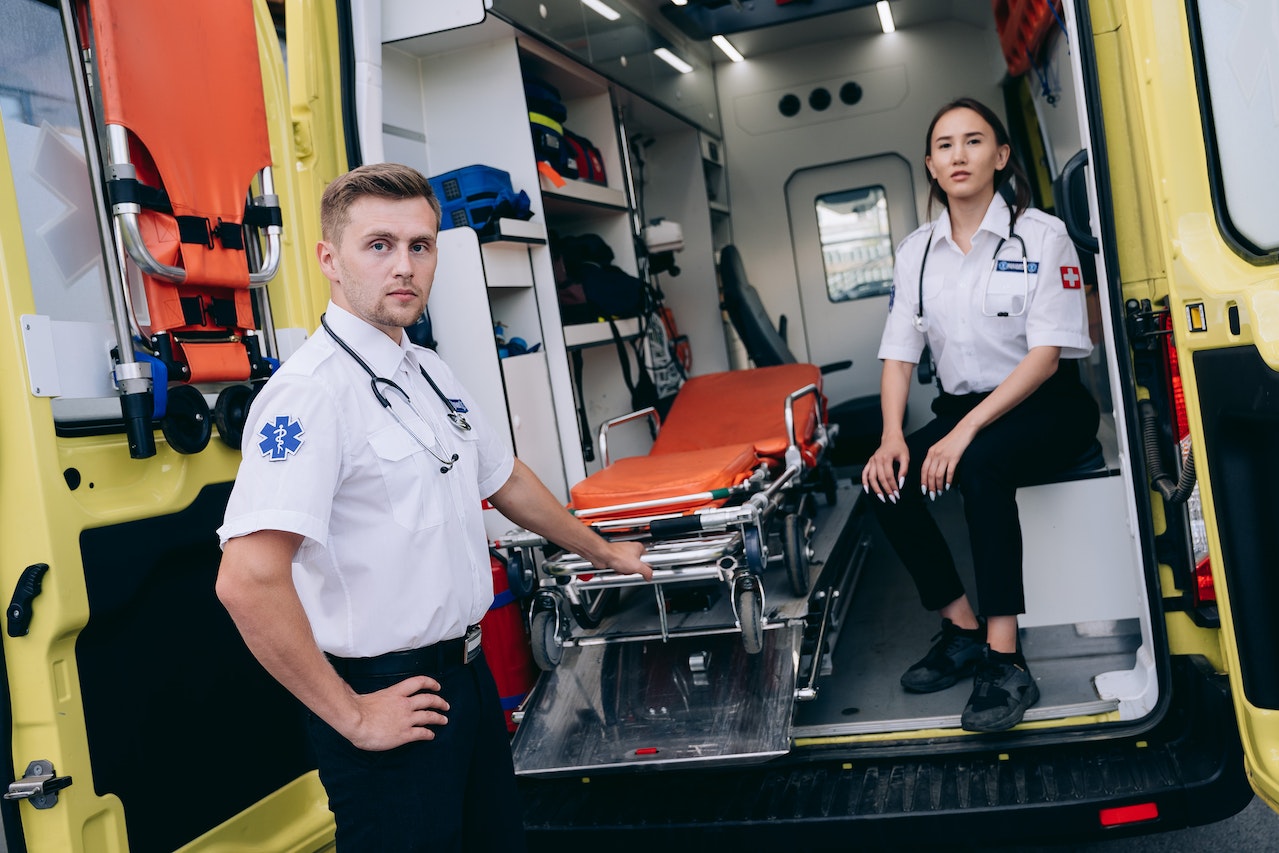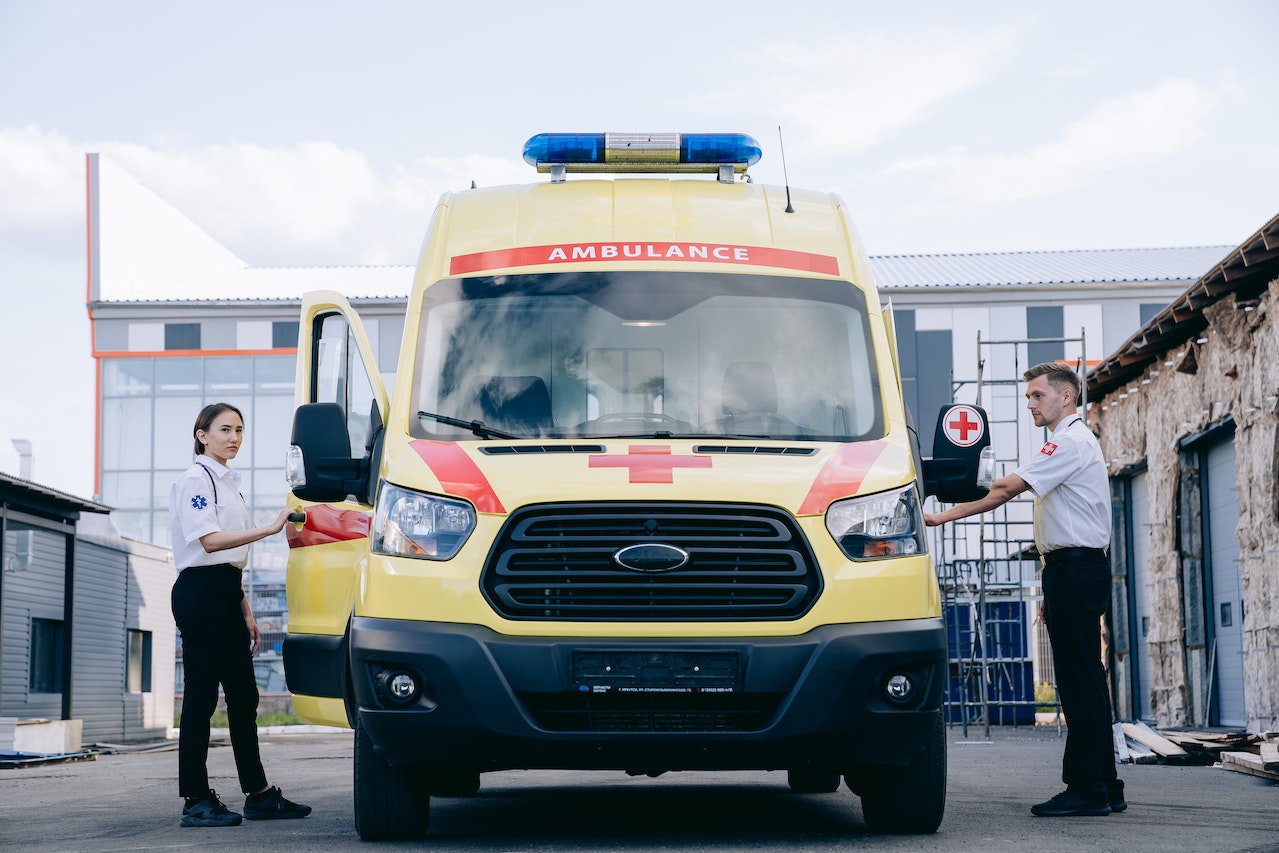In life-threatening emergencies, time is of the essence, and every second counts. So, acting quickly and getting medical help as soon as possible is crucial. However, not everyone knows how to call an ambulance or what to do in such situations.
In this guide, we’ll explain step-by-step how to call an ambulance. With this knowledge, you can feel confident and empowered to handle an emergency and potentially save a life.
How to Call an Ambulance
To call an ambulance for a medical emergency, dial 911.
If you’re calling an ambulance for the first time, it can be a stressful experience, especially if the victim is someone you know. Here are tips to help you handle the situation with courage:
- Avoid panicking: Seeing your loved one in a life-threatening condition can shake you to the core. Despite the situation, avoid panicking. Remember, a lot can happen in those few minutes, and your actions could mean the difference between life and death.
- Speak clearly: Keep in mind that the operator can’t see the situation, and they rely solely on the information you provide. Speaking clearly and correctly describing the victims’ current situation will help the dispatcher. Also, answer the questions asked clearly and concisely.
- Don’t hang up: Once you dial 911, stay on the line until the operator asks you to hang up. Staying on the line allows you to give the dispatcher the necessary information about the victim.

When you dial 911, try your best to remain calm when speaking with the operator. The operator will likely ask you the following questions:
- Your location and specific address (give the exact location using landmarks)
- Name of the victim
- The victim’s current condition (Is the casualty responsive or breathing?)
- Where the victim is (in the bedroom, backyard, kitchen, or car)
- The phone number you’re calling with
Don’t hang up until asked to. Stay on the line to answer any other questions the dispatcher may have.
Once the operator has gathered all the necessary information, they’ll give you further instructions until help arrives. The ambulance will most likely arrive while you’re still on the line.
How to Call an Ambulance for Someone in Another State
If a friend or family member you’re chatting with suddenly complains of chest pains or any other life-threatening condition, you can call 911 on their behalf.
When you call 911 for a loved one in another state, an operator from your local state will answer. The dispatcher will transfer your call to the state where you need an ambulance.
Once the call transfer is successful, the operator will ask you questions about the victim who needs help. Answer all the questions clearly and help the dispatcher understand the urgency of the situation.
What to Do as You Wait for an Ambulance
You can assist while waiting for an ambulance to arrive. Here are some of the things you can do to help the victim.
Assess the Victim’s Situation
Examine the victim’s situation to find out if you can do anything before the EMTs and paramedics arrive.
Stabilize the casualty, if necessary.
Remove the Victim From Further Danger
If possible, remove the victim from further danger. However, be extra careful when doing this so you don’t injure yourself.
Here are a few things you can do to eliminate any immediate threats:
- If the victim is in a dangerous area like a busy road, you may want to move the injured person to the side of the road.
- If the casualty is bleeding uncontrollably, apply pressure to the affected area to reduce the blood flow. You can use available items, such as a shirt, to apply pressure to the wound.
- If the injury took place in a car accident and the vehicle is smoldering or smoking, you may need to remove the victim. However, never go near a car that’s on fire.
Find Help in the Immediate Vicinity
You may want to remove the injured person from further danger, and you can only do this with the help of someone. Ask the people around the scene to assist.
Comfort the Victim
Even if you can’t provide assistance, comfort the injured person while waiting for EMTs and paramedics to arrive.
You can do this by:
- Helping the victim relax
- Assuring them that help is on the way
- Listening to their requests
Don’t Administer a Medication or Give the Victim Food or Water Unless Instructed
Sometimes the first thing that comes to your mind when someone is in a life-threatening situation is giving them food or administering medication at hand to make them feel better.
Don’t do this unless instructed by the emergency operator.
You want to avoid a situation where giving something to the casualty could worsen the current condition.
Clear the Pathway
Clear the pathway to make it easy for paramedics to access the victim. Remove anything like toys or personal belongings blocking the entrance to the front door or the victim’s location.
What to Expect When the Ambulance Arrives

Once an ambulance arrives, get out of the way and let the EMTs and paramedics take over. These professionals have the training to handle medical emergencies.
Be ready to help. The paramedics may ask you to assist them on the scene. Remain calm and collected and follow the instructions. If they tell you to move away from the scene, don’t hesitate.
How to Call an Ambulance Abroad
If you’re traveling outside the US and find yourself in a medical emergency, you’ll need to know what number to dial for an ambulance. In many countries in Europe, 112 is the number to call for an ambulance. It’s also completely toll-free.
It’s always a great idea to check the State Department’s website for emergency numbers you can use in your new location. Note that in some countries, they have different numbers for specific emergency services. For example, the number to call for police may be different from an ambulance or fire.
When in Doubt, Always Call an Ambulance
If you ever find yourself in a life-threatening emergency, you’ll need to act quickly to potentially save a life, which could mean calling an ambulance.
Knowing how to call an ambulance is vital not only for medical emergencies but also for non-emergency situations.
If you need an ambulance in Chicago, Illinois, call Elite Ambulance. We can help with all your emergency and non-emergency medical transportation needs.
Comments are closed.



Recent Comments